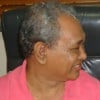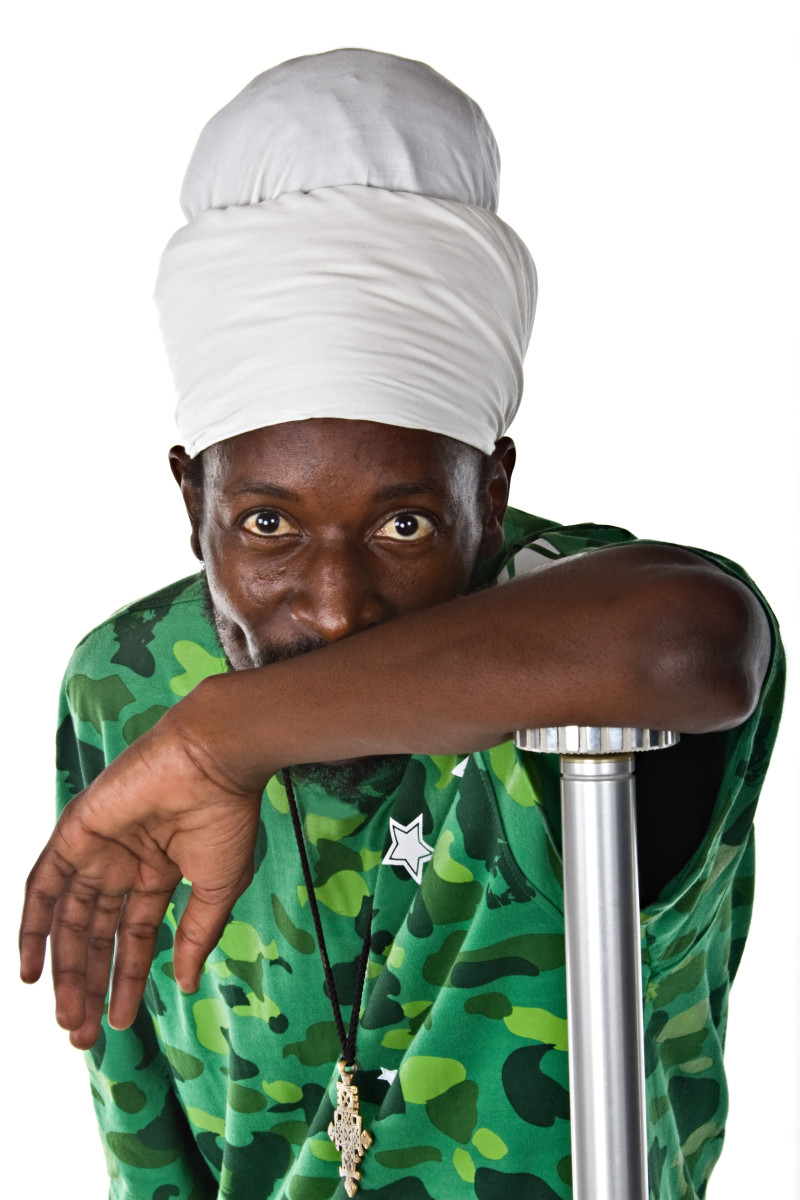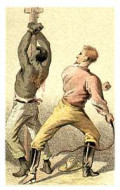Why Some Developing Countries Will Take a Long Time, or Never, to Become Developed
Defining their own development and their power to attain it decide how long developing countries will take to develop
One point that must be agreed upon is the meaning of "developed countries." What are the indicators or measures? Should it be presence of car manufacturing owned by its citizens not multinationals? Presence of pharmaceutical industry but not a multinational? Other indicators can be: Level of income. Balance of trade. Foreign exchange rate. Morbidity. Land reform. Literacy rate. Distribution of wealth. Employment rate. Life expectancy. Power in relation with other countries. Competitiveness. Satisfaction (income level might be higher in the U.S. than in China, but the Chinese might feel more satisfied with their life).
Gross national product hides unequal distribution of wealth and social injustice.Ten percent of the population might be too wealthy and the rest might be too poor.
How long?
There are several factors that contribute to the attainment of development. Most developing countries had been colonies of so-called developed countries. It takes time for former colonies to recover from exploitation of their resources like gold, diamond, silver, lumber by former colonizers. The Philippines had been exploited for its gold that at one time inflation in Europe was triggered by the abundance of gold from the Philippines. The timber of the Philippines had been made into merchant ships and warships which the Spaniards used in their naval battle with the English navy that resulted in the demise of the Spanish Armada.
[The Philippines was colonized by Spain from 1521 to 1898; was independent in 1898 to 1901 after a revolution against Spain; was annexed forcibly by the Americans since 1901. She was to gain independence in 1945 but was delayed by the Japanese occupation in 1941 to 1945 (World War II). She gained independence from America in July 1946.]
Another factor is the colonial and neocolonial policies of the former masters. For the Philippines, it has been the policy of the United States to continue colonial policies since it gained independence in July 1946, just after WWII.
"...Early in 1945 Washington drafted the pending Philippine independence treaty to provide total free trade between the two countries for twenty years, save for traditional quotas -- a measure the State Department immediately acknowledged would create a special and dominating economic relationship. Despite this, and a parallel effort to obtain exclusive United States base rights that seriously compromised Philippine sovereignty, on May 5,1945, Truman publicly acknowledged that the essentially colonial 'special relationship' with the Philippines would continue after independence, greatly embarrassing the trade reformers in the State Department" (Kolko, J. and G. Kolko. The Limits of Power. 1972:80).
Another factor is the model of development available and allowed by the neocolonizers for adoption. A feudal country whose feudal lords serve as the best means of controlling it will get all the support to maintain feudalism. The United States supported the dictatorship of Marcos in the Philippines. Feudalism is eliminated in a country whose feudal lords are also the warlords who had challenged the U.S., like Japan.
Another factor is its status as a market. Is it better that a developing country remains as a market of manufactured products, semi-processed goods than for it to manufacture its products and process its goods and become a competitor?
Power in relation with other countries is still another factor. Former colonies are no match to the power of the former masters who have designed it to be so. Look at the World Trade Organization. Filipino farmers suffer because the price of beet sugar is lower that than that of cane sugar, beet growing being subsidized. But subsidy is not allowed for sugar cane.
Domination
An extreme example of the power of developed countries was shown by President Franklin Delano Roosevelt of the United States, Prime Minister Winston Churchill of the United Kingdom, and Marshall Joseph Stalin of USSR who were leaders of the Allied Powers in WWII. They decided the fate of the world in the Tehran Conference, in Iran, in 1943 when Hitler's Germany was on the verge of defeat (Taylor, D. Franklin D. Roosevelt.2002:42). Other countries were made to amend their constitutions to allow superpowers to exploit their natural resources. They decided how Germany would be governed. USSR got three votes as a nation in the United Nations while the U.S. and U.K. got one vote each. Would France, or Switzerland, or China, or Canada, or Australia agree that USSR has three votes in the United Nations while each of them has one vote? That's how it is.The three votes could be a form of reward to USSR for having suffered the brunt of Hitler's assaults when the Allies were preparing the cross-channel invasion that landed in Normandy then on to the heart of Germany to exact unconditional surrender. Stalin grumbled at the delay of the invasion.
World War II resulted in the weakening of European countries and other countries economically and politically. WWII saw the emergence of the United States as an economic and political power. In June 1947, Washington wanted "to permanently influence and shape Western Europe's internal economic policies." Then Secretary of State George C. Marshall "called upon the governments of Europe to take the initiative in formulating a program for a coordinated reconstruction, promising that the United States would provide 'support' and 'friendly aid' for their effort" (Kolko, J. and G. Kolko. The Limits of Power. 1972:360). The United States launched the Marshall plan around 1948 to provide credit to countries all over the world for use in reconstruction from the rubble of the war. The Marshall plan was a vehicle to direct the economy of countries given loans and to infringe upon their sovereignty.
In 1947, the Philippines amended its constitution in accordance with the demands of the United States, to wit:
"...the disposition, exploitation, development, and utilization of all agricultural, timber, and mineral lands of the public domain, waters, minerals, coal, petroleum, and other natural resources of the Philippines, and the operation of public utilities, shall, if open to any person, be open to citizens of the United States and to all forms of business enterprises owned or controlled, directly or indirectly, by citizens of the United States...." (qtd. in Agoncillo, T. A. History of the Filipino People.1990:438).
Some members of Philippine Congress opposed this amendment. With them in Congress, the above amendment would not pass. They were ousted from Congress through a resolution accusing and convicting them of "alleged electoral frauds and terrorism" committed during the Japanese occupation.
Developing countries are victims of global warming that has been brought on by developed countries. Their peoples suffer from diseases, floods, crop failures, destruction of homes owing to global warming. Until now developed countries hesitate to fund programs to mitigate global warming and to cease from engaging in activities that exacerbate global warming.
(I have a Hub "Framework Useful for Developing Countries To Become Developed.")
History as inspiration
History may help accelerate development as an oasis of moral courage and inspiration. For example, China. For a long time it had been independent (as told by Marco Polo) until Westerners and Japan came. It took years, effectively since 1948, for China to assert its independence, adopt its own political system and adopt its economic system. Recently, it recovered Hong Kong from the United Kingdom and Macao from Portugal. It has yet to recover Formosa, now called Taiwan, to which Chiang Kai Shek and his followers fled when Mao's regime took over China. When Bertrand Russell, a British, was in China (where he was "asleep" for one month because of tetanus infection) as a visiting professor he opined that China can have the political system of her liking and adopt a capitalist system. After several years of humiliation, China now reigns over its political system and economy.
The Philippines had fought against two superpowers. It rose in revolution against Spain and gained independence only to be snapped by the United States. It fought the United States that was on its way to expansion. The Philippines was the first country in its empire. The Filipinos through diplomacy and show of political maturity that they could govern themselves gained independence through peaceful means. However, the willingness of the Filipino elite and landlords to collaborate with America contributed a lot to the decision of America to grant independence to the Philippines. For example, the elite of Negros Island had organized themselves to make a presentation of collaboration to the Americans while some leaders of the Philippine Republic, like Gen. Macario Sakay and Gen. Miguel Malvar, were still fighting the Americans. The same elite benefited from their treachery when the American regime gave a preferential treatment for their export of sugar to America.
Courage
Several developing countries do not have the courage to assert themselves, adopt their political system and set up their own economy. Countries under the umbrella of the IMF and the World Bank are lame, although there are some room to avoid being so supine as China has shown. They do not have the power and resources to set up counterparts.
Some countries like the Oil Producing and Exporting Countries (OPEC) may have their economic clout but are dependent politically and for their security on developed countries especially the superpowers.Vietnam is worth watching for having fought for its freedom from a superpower.
Some developing countries can only have some latitudes like the ASEAN (Association of South-East Asian Nations) but are severally and separately under the influence of developed countries in major areas of nationhood like security, industry, economy and climate change.
Others may never achieve some level of development on their own but tugged along by developed countries. Developed countries need them as buyers of their products, sources of their raw materials, assemblers and providers of low-cost labor.
Dynamics of power
The dynamics of power in a developing country play a big part in development. The ruling class will manipulate resources and power to remain in power. The ruling class can drain resources through corruption or legislation to the disadvantage of the poor and less powerful.
In the Philippines, one ordinary government employee when issued government money to buy a pair of scissors must get an official receipt for the purchase. If he cannot show a receipt he will pay for the pair of scissors out of his pocket. Or he can be punished for it, like suspension from work, or dismissal.
How about the ruling class that has members voted to Congress? About 10 years ago the Philippine Congress passed a bill that was signed into law by the president giving pork barrel to congressmen and senators to set up development projects in their sectors. (They are not supposed to do that; their mandate is to make laws). A congressman is entitled to 170 million pesos per year; a senator is entitled to 200 million pesos per year. A provision of this pork barrel law is that a congressman or a senator is not required to show any receipt or accounting of how that amount of money is spent! Now, the poor and the constituents barely, if at all, understand the ruse. Any objection was a minority and was defeated. That was how a whooping pork barrel has become a law because of the rule of majority that come from the ruling class. This whooping unaccounted for pork barrel is a travesty of morality.
Some congressmen give free token medicines (an electioneering stunt) to their constituents who, unawares, are profusely grateful. Senator Francis Escudero said in a television interview that when he was a congressman (and enjoying that pork barrel) he made a report of where the money was spent, but not as an accounting report. However, he does not say that he objects to such a legislation. As a senator, he is enjoying that whooping pork barrel and has kept quiet about it.
I cannot see in the future how this legislation can be abrogated for as long as this kind of ruling class is in power.
Now a senator is filing a bill that, if signed into law, prohibits government officials from claiming with posters or billboards that s/he is sponsoring this project, say, the building of a health center or an auditorium or a classroom. That's trivial; all quiet about the whooping pork barrel.
Swallowing this deception, the less powerful people are funding the reelection bid of those who are now in Congress because the incumbents can use their pork barrel for election campaign.
To repeat, an incumbent member of Congress can use his pork barrel to campaign for his reelection, or to run for another elected position. A senator or a congressmen can only have three terms in a row. After that, a senator can run for a position as congressman; a congressman can run for a seat as senator. Or a member of the clan can run for an elected position to perpetuate power. All the time he has in his pocket this whooping unaccounted for pork barrel.
Leadership from their own rank
The poor, 70% of the population, that has the power by virtue of number of votes, lacks leadership to break up the ruling class and to break out of the stranglehold priestly power has over them.
Rivalries in power forestall or advance development in a developing country.
The Philippines will never become developed for as long as the present political, economic and social structures remain and foreign powers intervene.
Leadership from the elite has not served the poor. The poor must nurture their own leaders on their way to development.
New Entries as of Feb. 13,2012
Let us add some technical nitty gritty.
Assuming development had been defined, let us go into factors needed to attain it.
The overall factors are resources, economic formula and will or power.
The approach is to apply resources (land, capital, human capital, labor), economic formula, and power toward higher standards of living (a level in which an individual citizen has the income and means to provide for needs and some amenities to enjoy life).
Power means to have discipline, capability to work with others (individuals and nations) and the courage to resist intervention. Power involves naked power (brute force), persuasive power (to persuade), executive (power accruing to position, president, manager), and economic power. The other component of power is priestly power that belongs to the religious or priests.
Let’s apply an economic formula called neoclassical theory of growth (Dornbusch, R. et al. Macroeconomics, 10th edition), one subformula is as follows:
Output growth equals labor share times labor growth plus capital share times capital growth. In the form of a formula:
∆Y/Y = [(1 - θ) X ∆N/N] + ( θ X ∆K/K)
Where Y means output, N means labor and K means capital. θ means the value is not zero. The value is empirical data, meaning we get it from our records of performance or harvests.
To increase our output, the factors that we should watch out for and manipulate with vigor and courage are labor, and capital (including resources).
Our efforts should result for each of our citizen (of course computed as per capita) in:
One: constant income for each of our citizen,
Two: constant capital, and
Three: saving is equal to investment needed to provide capital for new workers and to replace worn out machines.
Once these had been attained we must add one more element, technology. Of course, some technology had been employed in bringing about the three above conditions. However, there must be a spurt of added technology, either adopted from other countries or developed domestically.
If we had attained the above three conditions we will come to a steady state. How could we make our output grow?. We should increase inputs and enhance our productivity with improved technology and capability of our work force. So, let us add technology to the formula, as follows:
∆Y/Y = [(1 - θ) X ∆N/N] + ( θ X ∆K/K) + ∆A/A
Where A stands for technology. . Output growth equals labor share times labor growth plus capital share times capital growth plus technological progress.
With added new technologies, our economy will grow and reach another plateau, a new higher steady state.
During the intervening years, the income of each citizen increased that each could save more.
However, the “growth rate of output per head” will remain the same.
How else could we propel our economic growth from this new higher steady state?
There should be an increase in the capital-labor ratio. This can be attained by the infusion of capital stock such that capital stock grows faster than the labor force and depreciation.
Let’s take a foreign loan or make a loan four ourselves by means of an entry in the treasury account.
(I have a Hub “How Extra Oxygen Policy of Development Works for Developing Countries”).
There will be barriers to overcome and adjustments to make. If we fail on these, we will never attain development. If we succeed, having included contentment and happiness, we will attain development. End of new entries.










